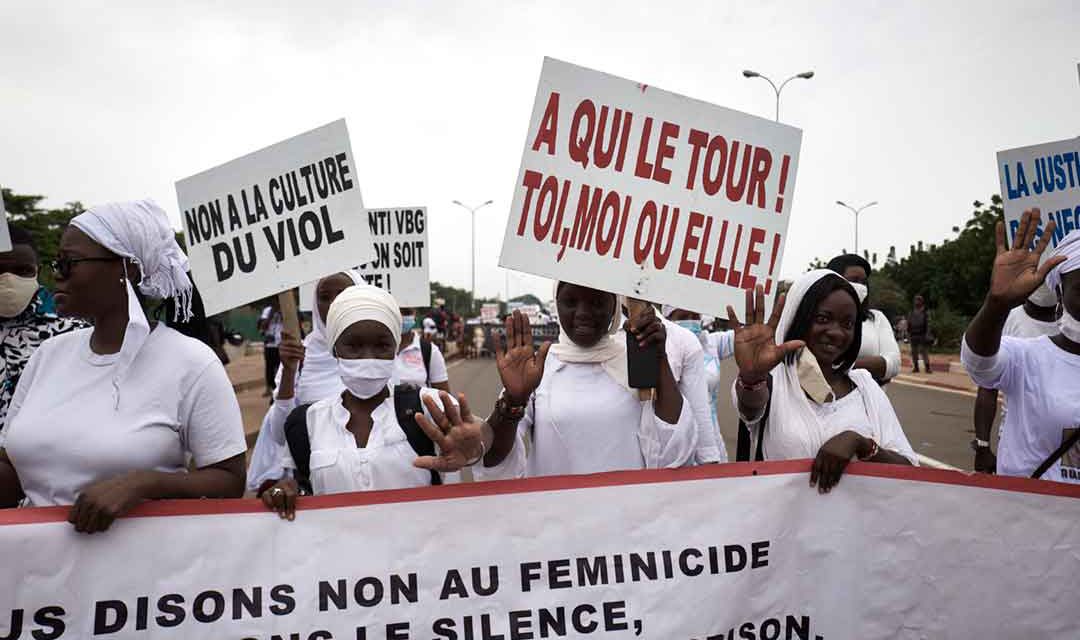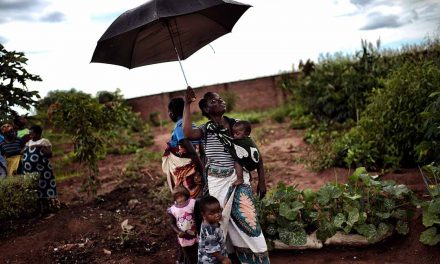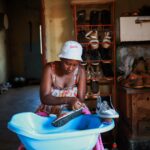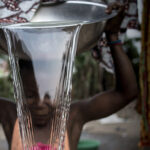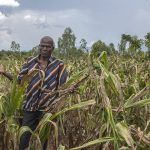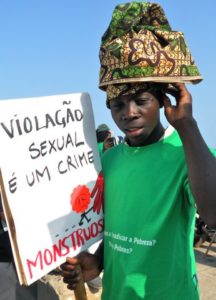
“Rape is a monstrous crime” © Mercedes Sayagues
One night in April 2013, Luisa, a 46-year-old woman living in a small town in Mozambique, was on her way home when two men dragged her into an abandoned hut and raped her. “I wanted to die, but I told myself I must survive for my daughters,” said Luisa. After the ordeal in Boane, about 40km west of Maputo, Mozambique’s capital, Luisa (who asked that her real name not be used) checked on her teen daughters, and then went with a neighbour to the police station. The officers there did not follow protocol: they did not tell her not to wash before proceeding to hospital; nor did they inform her that she should keep her torn and dirtied clothes to preserve any DNA evidence that might be on them. Luisa then went to Boane’s district hospital. But the nurse there told her to return the following morning at 7am. The nurse was “not familiar” with post-exposure prophylaxis (PEP), Luisa recalls. (PEP is medicine that helps to prevent HIV infection of a person after potential exposure to the virus; HIV, if untreated, causes AIDS.) But when Luisa returned the following morning, another nurse told her to sit on the floor of the maternity ward and wait.
She waited about four hours. The attending doctor later said she had forgotten about her, Luisa recalls. About noon that day, Luisa, a manicurist, finally got through to a doctor who was one of her clients. The doctor knew the hospital director and called him. Soon Luisa had been assigned a hospital bed and dosed with emergency contraception and PEP. Meanwhile, back in Boane, neighbours caught one of the suspects and took him to the police, but he was soon released. Luisa recalled that he had bragged, during the assault, about “knowing cops”. Luisa is one of countless victims of sexual violence who are not protected because Mozambique’s police, doctors and the judiciary are slack in applying the law and procedures. A third of Mozambican women between the ages of 15 and 49 had suffered physical violence after the age of 15, according to a 2011 demographic and health survey (DHS). Some 12% of women in the same age range reported having suffered sexual violence, while a quarter reported suffering some kind of violence in the previous year.
Police recorded 23,660 complaints of violence in 2014, including 350 relating to suspected rapes of minors under the age of 12. But many cases go unreported, and reliable statistics do not exist on how many cases make it to the courts. Several laws and policies address gender violence in Mozambique, including a 2009 law on domestic violence and a new penal code that came into force in June. This new code swept away laws dating from Portuguese colonial days. For instance, under the former penal code dating back to 1886, charges against a suspected rapist of an underage girl could be dropped if he married her. This provision no longer exists. In addition, forced anal penetration is now classed as rape, and a former provision assigning a harsher sentence to the rape of a virgin has been removed. In addition, police say they opened 273 units with staff trained to deal with victims of domestic violence at police stations throughout the country. Over the last decade, Women and Law in Southern Africa/Mozambique (WLSA), an NGO that conducts research into women’s rights in seven southern African countries, says it has educated 700 police and 200 magistrates on gender violence.
Yet many problems remain. The police’s domestic violence units are only staffed from Monday to Friday until 3.15pm, though most violence occurs at night or over the weekend. Trained police staff are frequently assigned outside these units to perform other jobs, says WLSA coordinator Terezinha da Silva. Some police officers, says Ms da Silva, also share patriarchal values and advise women to “sort it out” within the family, she says, effectively protecting aggressors and re-victimising women. Mozambican courts are also slow and overburdened. A 2010 study by Professor Claes Sandgren of Stockholm University concluded that shortages of human resources, infrastructure and equipment were crippling Mozambique’s justice system. There was little coordination among judicial institutions and too little funding, according to the study. The system was “neither efficient nor transparent”, the study said. But the problems go further. “Our judicial system is sick with corruption and negligence,” says sociologist Rafa Valente Machava, executive director of Women, Law and Development (MULEIDE), a women’s rights group. “Perpetrators enjoy impunity; laws are ignored. Justice is for the elites; ordinary folks cannot afford it.”
By law, all health facilities are required to have rape kits and staff who are trained to use them. In practice, these kits are available only at hospitals and large clinics, says Estrella Alcalde, who manages a gender violence project in Mozambique’s Southern Gaza and Inhambane provinces for Pathfinder International, a US-based NGO. A 2011 Pathfinder survey in Gaza province asked women who they would seek help from in cases of violence. Some 78% said they would seek support from family; 33% said they would approach community leaders; and 25% that they would go to the police. Only 2% said they would report to the health services. Women avoid the health services for a number of reasons, including fear of being blamed for the violence inflicted on them, or of discrimination for reporting their case. They may also be ashamed of what has happened to them, or simply ignorant of the options available, according to the survey. Cases of suspected sexual violence recorded by police are not automatically referred to the courts as required by the new law, according to Ms Osório. Meanwhile, hospitals cite confidentiality and do not provide information on victims, even if they are only asked for numbers.
Many complaints relating to suspected sexual violence never make it into court or are simply dropped, she says. Rural Mozambicans often resort to traditional authorities and community tribunals to settle their problems, bypassing state institutions, she adds. “Community leaders are our Achilles’ heel,” agrees Pathfinder’s Ms Alcalde. “They are guardians of tradition and patriarchal norms. [They] perceive the new laws as a challenge to their authority.” However, some leaders are now referring victims to police, she adds. High illiteracy among women and low levels of education among girls are reported by the DHS, and these are other factors undermining law enforcement. Media campaigns are not very effective because nearly half of women in Mozambique do not have access to any media. Sheer distance from police stations and courts, as well as transport costs to towns can deter rape victims from reporting assaults, according to Berta Chilundo, a former president of MULEIDE. Meanwhile, many people do not trust the judiciary, Ms Chilundo argues in a 2013 paper on WLSA’s website. Gender-related attitudes and cultural factors also play a role, she says.
Judges and magistrates are mostly men who work in towns and operate in courts that work in Portuguese, the country’s official language. But two-thirds of Mozambique’s 25m citizens live in the countryside and nearly half of the population speaks only African languages, according to the 2007 census. Both of Luisa’s suspected rapists were eventually arrested. One of them, who was facing other rape charges, died in prison. The other suspect has still not been tried. This is not unusual. Many suspects spend years in prison before going to court, according to the Swedish study. “I was raped and I demand justice,” Luisa says. But two years after her attack, her case is still in limbo.
Mercedes Sayagues is a freelance journalist who covers Angola and Mozambique for the Daily Maverick. She is the author of two studies on AIDS in Africa and one on gold mining in Mali

